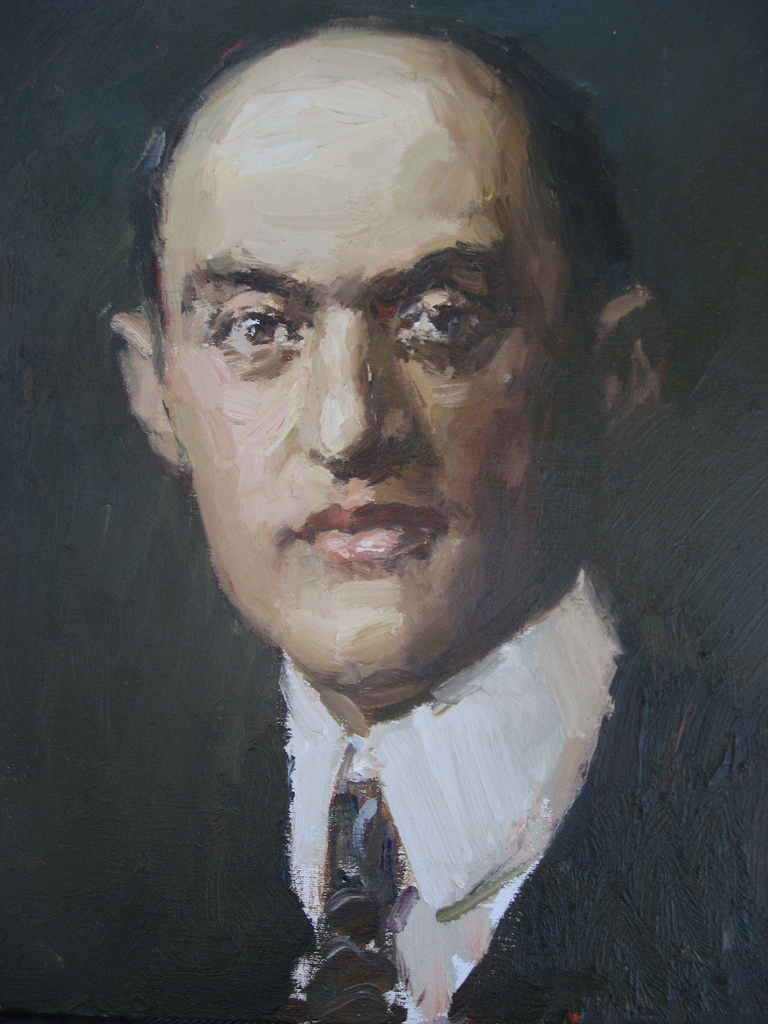
Biography
Joseph Alois Schumpeter (1883-1950) is generally regarded as one of the most important economists of all time. He was often said to be John Maynard Keynes‘ principal rival for the title of most influential economist of the twentieth century. And as the new century begins, Schumpeter’s reputation is rising.
Schumpeter is particularly known for popularizing the term “creative destruction” as a means of describing the manner in which entrepreneurial activity and innovation increase wealth and efficiency even as they lead to the displacement of existing capitalist firms and industries. Schumpeter’s work has led to a greater appreciation among economists for the activities of entrepreneurs and for the merits of capitalism itself.
A native of Moravia, a region of the Austro-Hungarian Empire which is now part of the Czech Republic, Schumpeter received his doctorate in Economics from the University of Vienna in 1906. At 26, he became an economics professor, the youngest professor in the German-speaking world. During the course of his life, Schumpeter also briefly served as Austria’s Finance Minister and was a lawyer both in London and Cairo. Schumpeter’s dismissal as Austria’s Finance Minister appears to have been partly in response to actions he took to prevent nationalization of Alpine-Mountain, a steel and coal company.
In 1924, a bank headed by Schumpeter ran into difficulty as Austria’s continued economic ills and hyperinflation in neighboring Germany affected savings rates and borrowers. The bank’s problems were complicated by several frauds involving Schumpeter’s subordinates. In response to these difficulties, the bank was absorbed by a larger competitor. Although not required to do so and not implicated in the corruption at the bank, Schumpeter elected to give up much of his income over the next several years in order to pay off debts from the period of his directorship.
In 1925, Schumpeter went to teach at the University of Bonn in Germany. Seven years later, Schumpeter left for the United States and a faculty position at Harvard University.
Schumpeter’s views were not always consistent and varied and evolved during different periods of his career. In his early writings about socialism, for instance, he did not reject the idea that a socialist economy could develop in the absence of a price system based on competition within a free market. His later writings refute this.
While at Harvard, Schumpeter taught such influential students as Robert Heilbroner, author of The Worldly Philosophers, and Nobel Prize-winning economist Robert Solow. Others who have cited him as a major influence include Robert J. Samuelson, former Federal Reserve Chairman Alan Greenspan, and management theorist Peter Drucker.
Schumpeter said that the economist he most admired was Léon Walras, a French theoretician who believed that the practical “value” of a good or service should simply be understood in terms of its price in a laissez-faire economic system. Yet Schumpeter was not a strict utilitarian, and he expressed appreciation for the ideas of Alfred Marshall, a leading proponent of the creation of the modern welfare state.
Schumpeter was the only son of a Catholic factory owner. However, unlike many other intellectuals of such ancestry, he did not become anti-capitalist.
A ladies’ man who was known for his expensive taste in clothes and for his equestrian skills, Schumpeter was married three times. He wed the beautiful Englishwoman Gladys Ricard Seaver in 1907. That union ended in divorce. In 1925, he married Anna Josefina Reisinger. A year later she and their child died during its birth. His third wife was the American economic historian Elizabeth Boody. She survived him and arranged for the posthumous publication in English of many of his most important books and articles.
